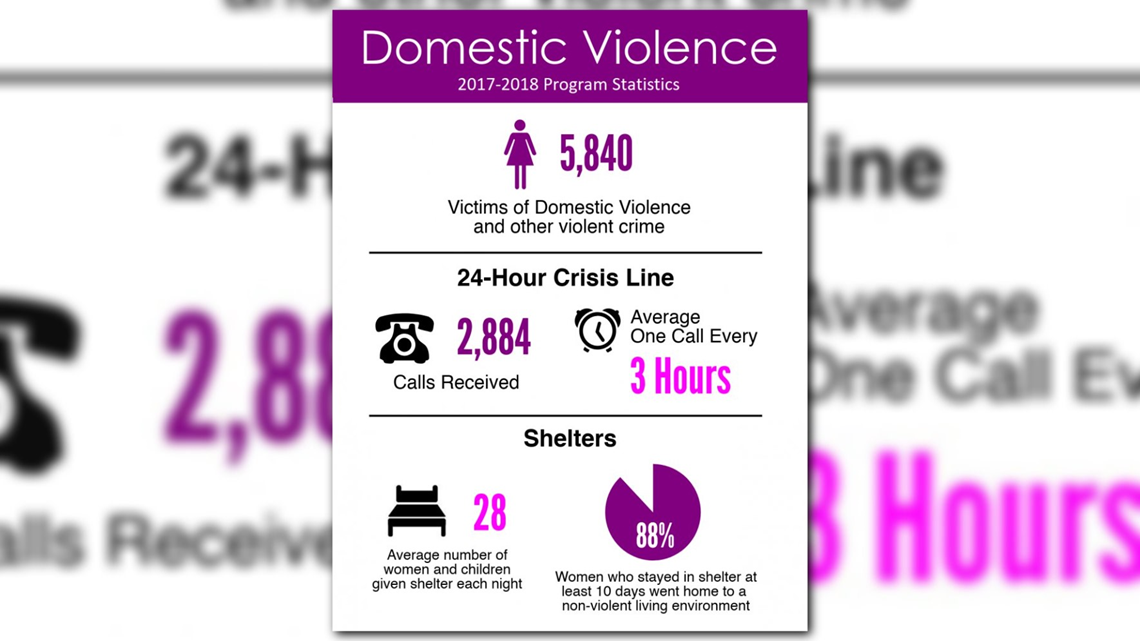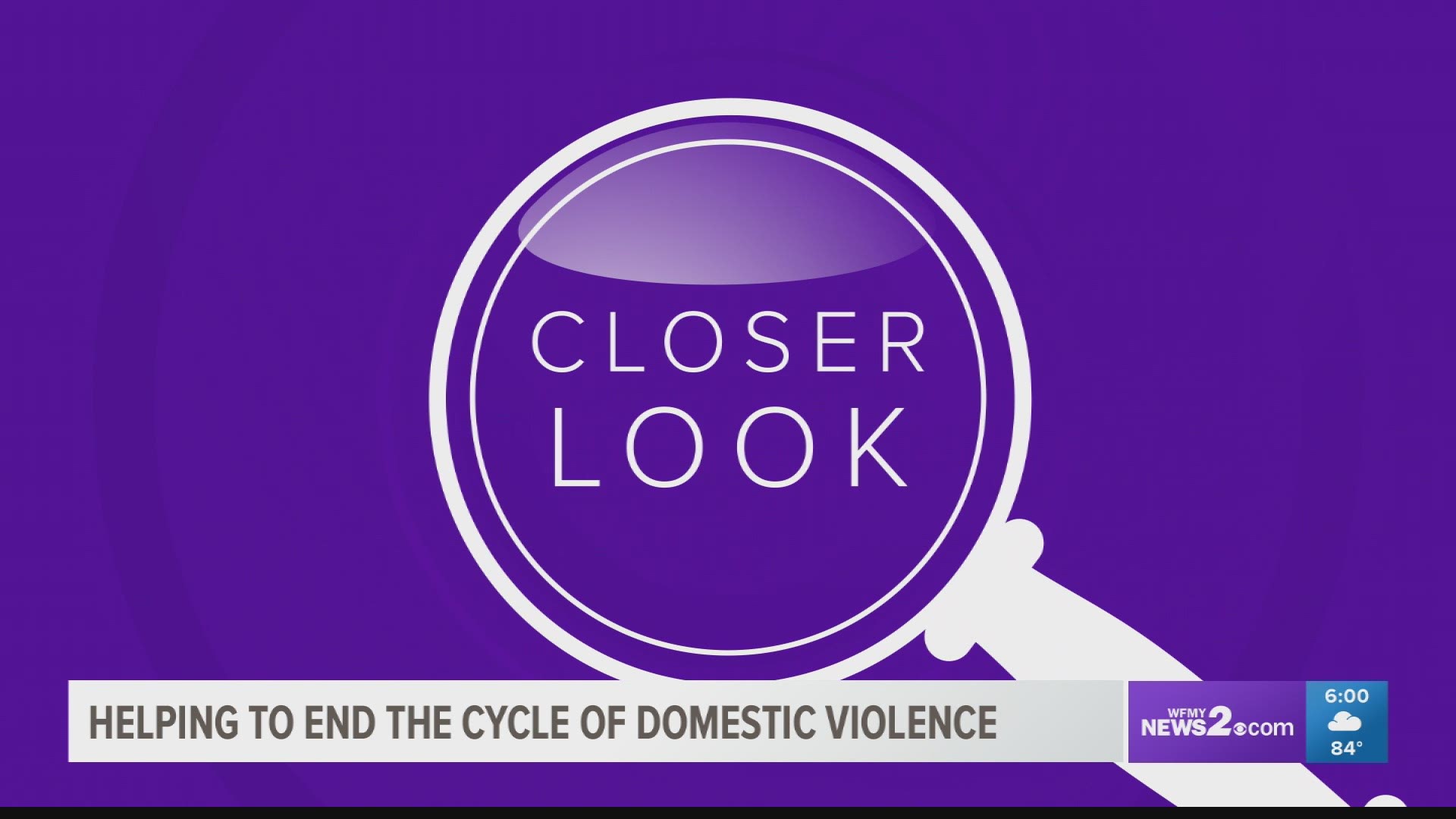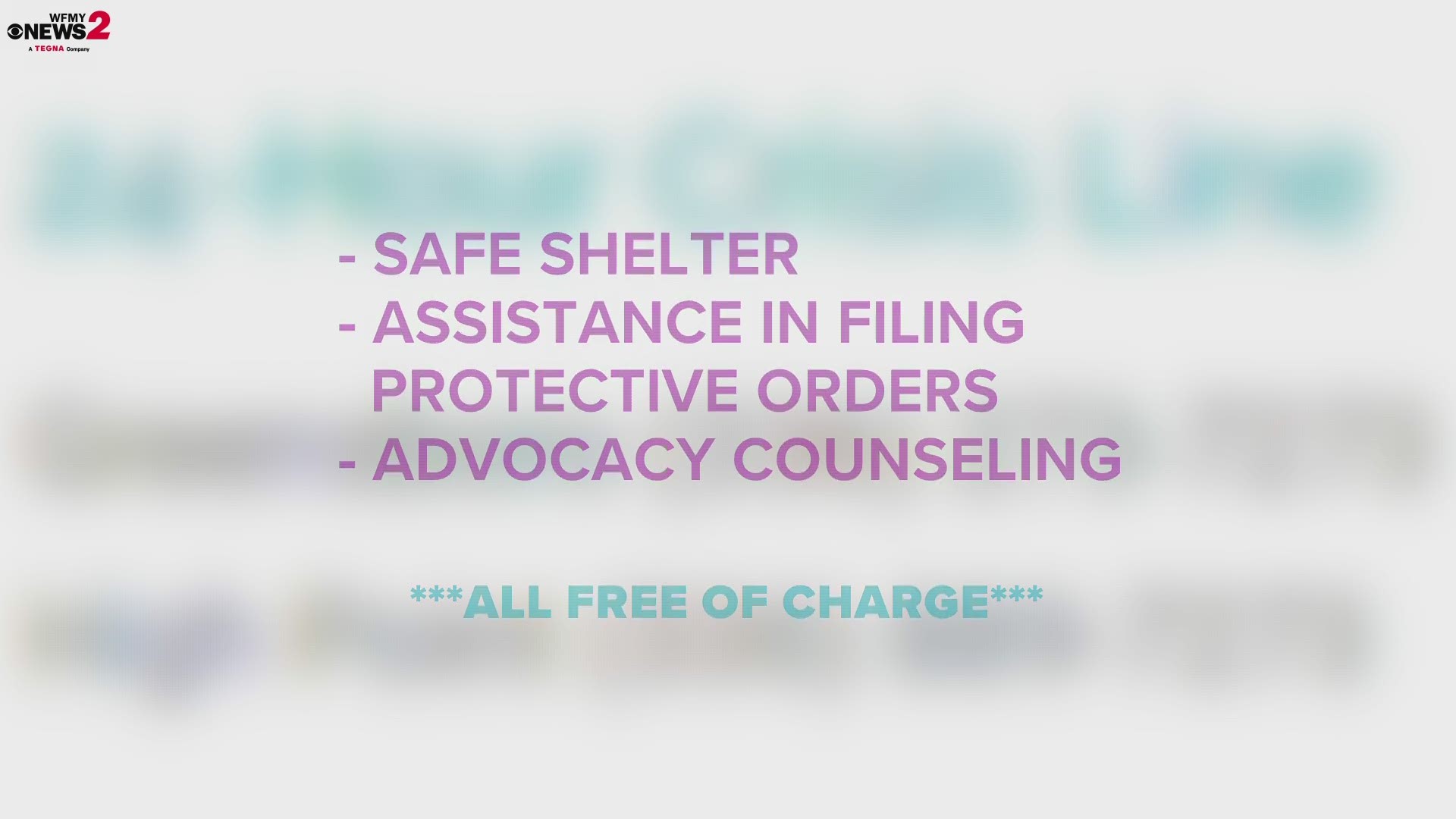Every day is a chance to support survivors of domestic violence in our community.
Here are some facts about domestic violence in our country and area, plus local resources for the many women and men looking to break the chains that tie them to their abuser.
Under North Carolina law, domestic violence is "the attempt by one person to injure, stalk or rape another person with whom he has an intimate relationship."


The murders of two Triad women earlier this year shed light on how domestic violence can turn deadly.
Winston-Salem Police said Melitha Metaits Lee and her husband, Edwin Colon Jr. got into an argument in the early morning hours of Monday, May 7, 2018. Colon shot at his wife and her two teenage daughters before he turned the gun on himself. Lee and Colon were rushed to the hospital where they both died.
That same night in High Point, investigators said a woman named Elizabeth Smith went with police officers and her two kids to get property from their house. As they approached, they say her husband Alvin Smith emerged from the house and shot her. Elizabeth later died at the hospital and Alvin turned himself into police.
In 2017, the Centers for Disease Control found that half of all homicides of women were related to domestic violence.
The CDC examined data on more than 10,000 homicides of women over the age of 18 from 18 states between 2003-2014. The agency found that 11 percent of victims experienced some type of violence in the months preceding their deaths and "argument and jealously were common precipitating factors."
Just over half the homicides identified were by firearms, and black women had the highest rate of dying by homicide, followed closely by Native American women. Thirty-eight percent of victims were never married or single at the time of their death, and approximately 15 percent of victims between 18-44 were pregnant or less than six weeks postpartum.
But domestic violence doesn’t only involve physical assault, it’s sometimes also financial, mental and emotional assault, like yelling, insulting, isolating, and manipulating.
Over the summer, Greensboro police reported a spike in violent crime in the summer, including domestic and aggravated assault, responding to 80 domestic and aggravated assault reports for the month of July as of the 16th.
The department expected numbers to increase with summer temps and research does show summer heat causes irritability which in return leads to aggressive behavior and violent crime.
Domestic violence, however, is a problem across the nation year-round.
On average, 24 people become victims of some sort of domestic abuse every minute in the U.S which is more than 12 million women and men over the course of a year.
Here is a list of resources and services available to domestic violence and sexual assault survivors in the Triad and beyond.
Call (866) 331-9474 or text "loveis" to 22522.
Community Intervention and Educational Services (Winston-Salem)
(336) 776-0322
Crisis Line: (336) 228-0360
Crisis Line: (336) 226-5985
(336) 570-6019
Family Justice Center of Guilford County
(336) 641-SAFE (7233)
(336) 703-2287
Crisis Line: (336) 723-8125
Crisis line for Greensboro: (336) 273-7273
Crisis line for High Point: (336) 889-7273
(336) 779-6320
(336) 373-2331
(336) 641-3000 Main line
(336) 641-3795 Child Protective Services
(336) 641-3717 Adult Protective Services
(336) 641-2517 Emergency Assistance
Call: (336) 429-5600
(336) 510-9292
1-800-233-4357 or 1-800-233-HELP
Monday through Friday, 8 a.m. to 5 p.m., at 336-773-7860 or 336-773-7741
If there are any other resources we did not list, email us at webteam@wfmy.com to include them.
► Make it easy to keep up to date with more stories like this. Download the WFMY News 2 App: Apple Users, Android Users


